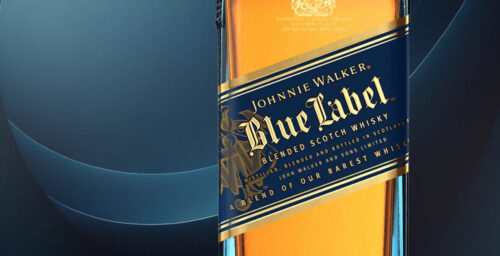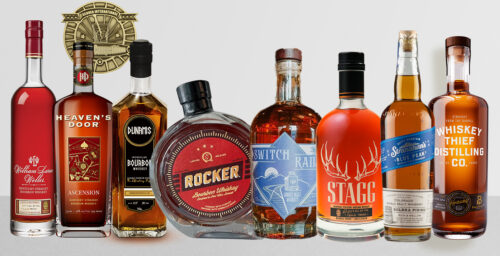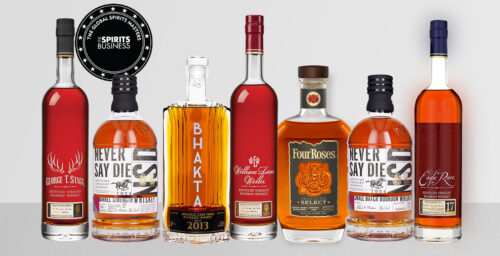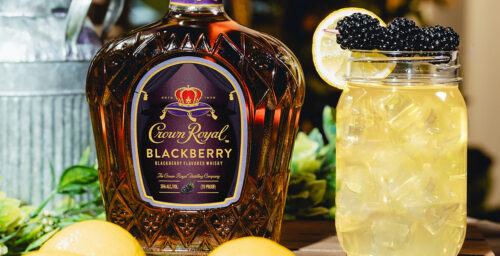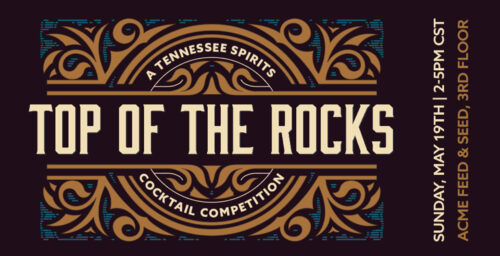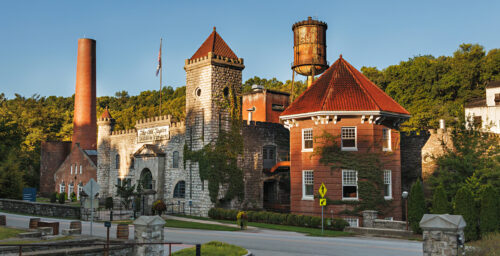Editor’s Note: This article is republished in ordinance with guidelines put forth from Israel 21c, its copyright owner. Author credit goes to Jessica Halfin.
When Gal Granov started his blog, Whisky Israel, in 2009, the community of whisky aficionados in Israel was small, import taxes on the product were heavy, and no Israeli-made whiskies were being produced.
It was a time when Granov, a Sabra from Petach Tikvah who had been writing about food, wine and spirits in Hebrew, made the choice to write his new whisky blog in English because there simply weren’t enough followers to keep the whole thing going in Hebrew.
Today, he writes, reviews and arranges whisky competitions and tasting events in Israel. He shares his knowledge with new members of the “club” and moderates a Facebook group of Israelis that amassed more than 2,300 members in three months and continues to grow daily.’
Only five years along, a bit of kismet, a lot of luck and an innovative spirit have put Israel at the beginning of a bonafide craft distilling revolution. This is good news for Granov and others, like Yoav Gelbfish, who shares tasting notes, industry interviews and whisky tour reviews on his own site (whiskygospel.com) and especially for the hard-working pioneers of the industry.
The current players are the Golan Heights Distillery in the ancient Jewish city of Katzrin; Pelter Distillery in Ein Zivan, also in the Golan Heights; and Israel’s current largest whisky distillery, Milk & Honey, in Tel Aviv.
Within the next year and a half, Legends Distillery in the Elah Valley and Edrei Distillery in Katzrin are set to open.
Additionally, David Zibell, owner, founder, and master distiller at the Golan Heights Distillery, has partnered with Lazar Berman to create the Jerusalem Distilling Company, whose rums, gin, Tunisian date liquor — and yes, whisky — proudly carry the lion of Judah on their label, which is Jerusalem’s symbol in both ancient and modern times. The distillery opened this January.
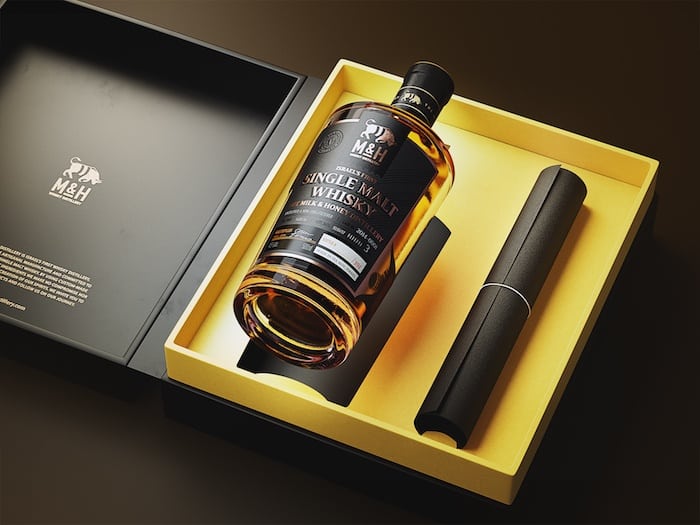
A visit to the Scotland of Israel
Climbing up to what is emerging as a new whisky region in Israel, along the winding road high above the Sea of Galilee, it is a stormy day. Through an overbearing mist, fields of overgrown emerald-green grasses growing from between chunky volcanic rocks, and the occasional herd of grazing cows, make this place feel like Scotland, the disputed birthplace of whisky.
There we meet Zibell, who moved to Israel in July 2014 and started production just two months later — a gutsy move for a new immigrant from Montreal with a wife and six kids.
He moved to Israel to realize his dream of making aliyah, but having the urge to make whisky, Zibell, formerly a real-estate agent and salesman with a background as a restaurateur and bread baker, decided that this was the time for him to live out that dream as well. On Israeli Independence Day 2016, his first whisky was released.
Part of his decision to set up shop in this fairly remote place bordering modern-day Syria was based on the many types of wild barley that cover the landscape, and the rivers and waterfalls carrying pure water down from Mount Hermon, including the nearby Salukia stream from which Zibell draws water for his production.
Yechiel Luterman, owner and distiller at nearby Edrei Distillery, moved to the Golan in 2008, also from Montreal and with similar aspirations, leaving behind a high-end legal practice for a future in whisky making.
Legends’ Alan Cohl and Noam Cohen moved from the United States to start making American bourbon-style whisky using Israeli corn in the Elah Valley –the biblical battleground where David felled Goliath. Both distilleries also are hell-bent on using Israeli-grown grains and barley, despite what could be a difficult trail to blaze.
“Up until about 60 years ago, even the Scots were using barley imported from Norwegian countries,” Zibell tells ISRAEL21c. “Now they have researched and refined which species are best for whisky production, and today they are growing their own, so things can change pretty fast.”
In the meantime, Zibell does whatever he can to keep his product as local as possible, right down to the copper stills, which master metalworker Yishai Socher hopes to begin making in Israel for the local market.
Zibell is already getting his aging casks from the Golan Heights Winery, a veteran Israeli powerhouse. For a product said to derive 70% of its flavor and coloring from the barrels it is aged in, this represents a direct infusion of Israeli soul into the whisky. Accordingly, one of the whiskies in the flagship line will be called “Golani Vino.”
The Golan Heights Distillery is now Israel’s second- largest distillery to Milk & Honey, which was started by kibbutznik Tomer Goren and opened a state-of-the-art facility in 2014 in Tel Aviv’s southern industrial zone where visitors can taste Milk & Honey’s young Israeli whiskies due for worldwide distribution in 2019.
Playful products
Coming up in an industry that isn’t strangled by the rules choking historical whisky-making in countries such as Ireland and Scotland, Israeli whisky makers can be more playful with their products.
This is evident in Zibell’s limited-edition Brewer’s Whisky, “Spicy Hummus,” made from distilled Israeli chickpea malt ale from the Meadan Brewery, known for its gluten-free, Passover-friendly beers. The beer is distilled, then aged in charred oak casks that previously carried Golani Black whisky, another variety in the distillery’s flagship line.
Spicy Hummus is a futuristic whisky with notes of citrusy hops, black pepper and a slight fizz at the finish. “I thought it was great, because nothing is more Israeli than hummus. I took the beer, distilled it, and aged it for two years, and this is what we got,” Zibell says nonchalantly, summing up a process that is described by some as an art.
Even more Israeli than hummus is the inventive and collaborative spirit that goes into taking things that one step farther and creating new products.
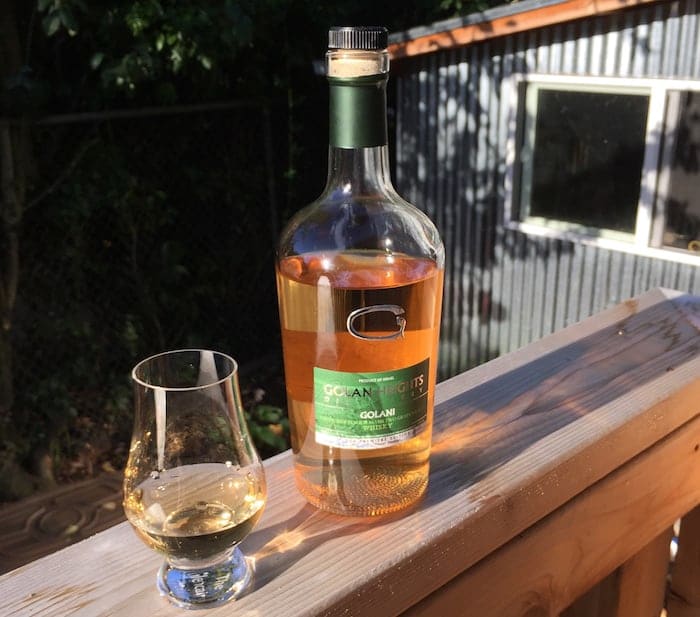
But Israeli as Zibell has become, you can also find a hint of his home country in the distillery’s maple whisky, which is surprisingly restrained, with just a touch of maple flavor that develops only seconds after the whisky has washed over the palate. The drink uses the kosher-certified maple syrup imported by Avraham McGowan, another Canadian immigrant.
More traditional varieties, like the distillery’s single-cask edition whisky, sport beautiful labels with handwritten annotations detailing from which number cask it was drawn, down to the type of wine previously aged in the used barrels.
More good things are sure to come. In Zibell’s words, “It’s only been three years, so we’re just starting to see the good stuff come out.”
Israel’s new whisky culture
Bars such as the Whiskey Bar & Museum in the upscale Sarona Market complex in Tel Aviv, and distilleries such as Pioneer Spirits in Beit Shemesh, have started giving workshops on whisky making and drinking — the latter concentrating on how to properly taste whisky and pair foods with the drink.
To accompany its whisky cocktails and 15 whisky-based tasting menu “journeys,” the Whiskey Bar & Museum has a menu dedicated to foods that pair well with certain whiskies, featuring dishes such as beef fillet carpaccio with whiskey aioli, roasted pistachio, cherry tomatoes and balsamic vinegar; and a chocolate mousse served with cocoa streusel, mango jelly, golden brownies and smoked whiskey dropper.
As Israel’s party culture shifts toward top-shelf spirits and high-end cocktails, bars that used to carry one or two bottles of whisky are now carrying one hundred times that and more. According to Granov, this is in part due to the recent easing of the whisky import tax in Israel.
Now, with lower prices on higher-quality alcohol creating accessibility, more Israelis are being turned on to the world of whisky. Bars such as Sasson in Haifa and Norma Jean in Tel Aviv carry upwards of 150 varieties of whiskies from around the globe, including trendy varieties from Japan and India, as well as American, Irish and Scottish specialty bottles.
Neither Sasson nor Norma Jean has begun serving Israeli whiskies yet. It will take some time for the industry to catch up, for whiskies to age beyond their young years, and for the craft producers to figure out how to share their product with a larger audience on their terms, while retaining the love and care that goes into artisanal distilling. A temperate climate is on their side, helping to age the whisky almost twice as fast as in colder climates.
The new generation of Israeli drinkers is turning up for industry events such as the Whisky Live Israel Expo (www.whiskylive.co.il ) in Tel Aviv, managed by Milk & Honey’s Tomer Goren, attracting sold-out crowds since 2014. It is coming up this year on March 14-15.
Whisky tourism
Considering trends in craft distilling, biblical- and culinary-inspired Israeli tourism, the demand for local, small-batch producing, and visitors seeking interactive experiences, there is a good forecast for growth in this industry.
The Golan Heights Distillery is already becoming a gastronomic tourist destination among other facilities in the Katzrin area, such as the Golan Brewery and Olea Essence visitor’s center. The distillery’s upcoming new facility suitable for large groups will collaborate with local bread- and cheese-makers to enhance the whisky-tasting experience.
Legends and Edrei hope to capitalize on the tourist market as well. The flagship bourbon of Legends Distillery, “Slingshot,” will serve as a jumping-off point in the future visitors’ center to explain the biblical tale of David and Goliath, which took place in the Elah Valley. Similarly, Edrei’s name represents a biblical tale of triumph that took place long ago in the Golan Heights, which will be explained to visitors. Another biblical tie-in is that wheat and barley are among the seven species of fruit and grain native to the Holy Land.
As far as target customers, Luterman of Edrei Distillery offers, “I would consider people like myself to be the primary audience – whisky-loving Zionists, both those living here as well as those not yet living here. Additionally, I would consider all whisky aficionados to be included as well — especially those interested in experiencing a craft whisky which actually exhibits true terroir and truly unique character, much like in winemaking.”
Products of Israeli distilleries would make a perfect addition for international events such as the Whisky Jewbilee, a travelling kosher whisky expo taking place in Seattle on March 2 and in New York City on June 15. They did not make the list for this year.
“The whiskies are very young, yet after tasting them all, I think they show great promise,” says Granov. “I am confident that we’re going to see excellent whiskies emerge three to five years from now. With friends and members of the Facebook group, we’ve bought a cask from Milk & Honey distillery in Tel Aviv, and we’re going to bottle that in three to four years’ time. I’m deeply convinced we will have world-class whisky in the coming years.”

